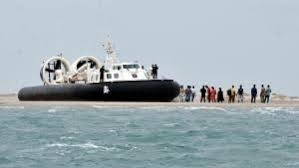| (Mains, General Studies Paper- 2: India and its Neighbourhood Relations) |
Reference
The Union Home Ministry has clarified that Sri Lankan Tamil refugees in India are not eligible for Long Term Visa (LTV).

Sri Lankan Tamil refugees in India
- During the Sri Lankan Civil War (1983–2009), ethnic violence between the Sinhalese-dominated government and the LTTE led to a large influx of refugees into India.
- About 60,000 refugees live in camps in Tamil Nadu and many other camps outside.
- India has provided humanitarian assistance to these refugees but has refrained from granting them refugee status under international law.
Reasons for being ineligible for long-term visa
- Long-term visas are granted by India to minorities (Hindus, Sikhs, Christians, Parsis, Buddhists, Jains) from Afghanistan, Pakistan and Bangladesh who came to India due to religious persecution.
- Sri Lankan Tamils do not fall in this category as their migration is linked to civil war and ethnic conflict rather than religious persecution.
- The Citizenship (Amendment) Act, 2019 (CAA) also excludes them.
- Long-term visas required for citizenship are issued for a period of one to five years.
Indian citizenship for Tamil refugees
- Although Sri Lankan Tamils are not eligible to apply for long term visa (LTV), foreign nationals can apply for Indian citizenship under the Citizenship Act, 1955.
- According to a Home Ministry letter of 1986, no Sri Lankan refugee who came to India on or after July 1983 should be citizened/registered under the provisions of the Citizenship Act, 1955 and the Citizenship Rules, 1956.
- These instructions are still in force.
Consequences
- Sri Lankan Tamils are living as ‘refugees’ under state-run welfare schemes without Indian citizenship.
- This raises concerns regarding human rights, integration and rehabilitation.
- The community exerts pressure on the Tamil Nadu government which has sought a permanent solution for them.



